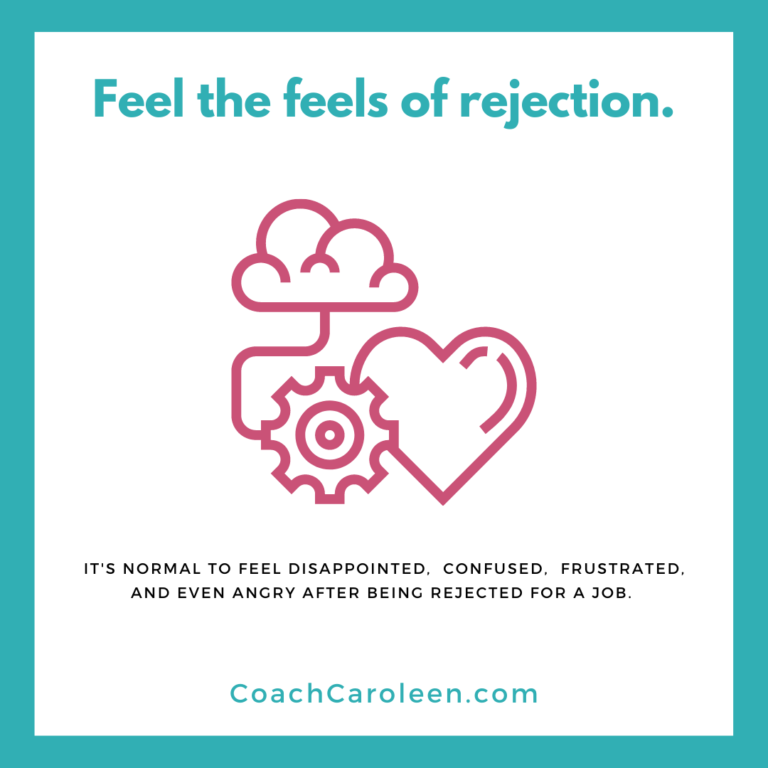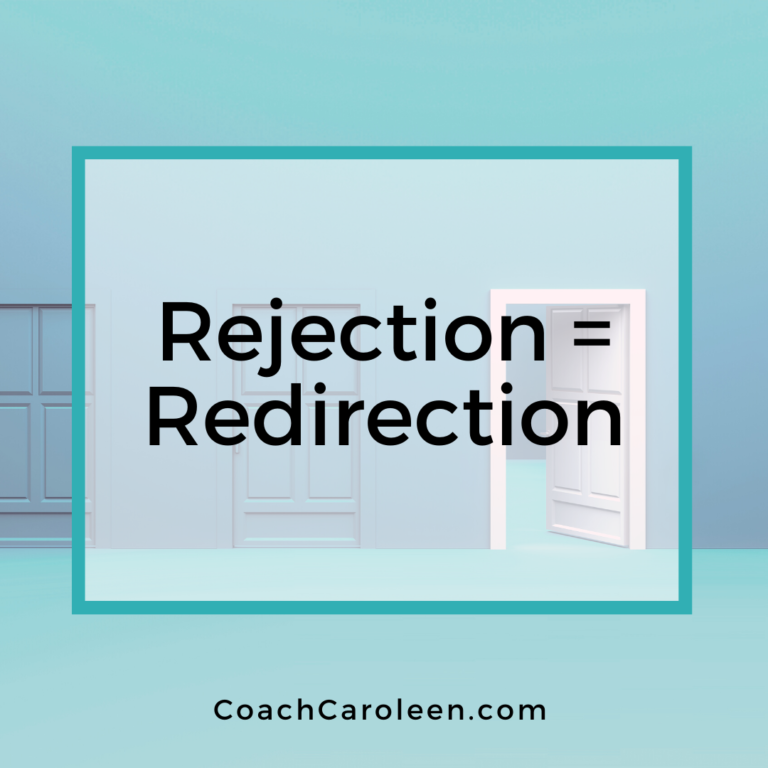Additional menu
Picture this…
You’ve gotten through three rounds of interviews.
Round 1 – The recruiter grills you. They make you update your resume and LinkedIn. They tell you to jump, and you say how high? You get past the recruiter screen.
Round 2 – You pass the initial hiring manager interview.
Round 3 – You participate in the panel interview when you get to meet the team.
And then radio silence…
So you follow up with the recruiter. She was so Johnny-on-the-spot and now she’s MIA.
Then it comes… the REJECTION. BOOM!
We really enjoyed meeting you BUT we decided to go another direction.
WHHHAAAAAAAAT??!?!?!?!?!?!

Feel the feels of rejection
OK. I’m going “emo” here. Do you remember that term? It’s short for “emotional” and the job search is an extremely emotional roller coaster.
When you get that call or email that you didn’t get the job, it stings. We’ve all been there. You can’t win every game. Every lottery ticket can’t payout. And with the job search, you’ll lose more than you win but that’s part of the process.
I can’t tell you how many phone screens and interviews that I’ve been on where I haven’t gotten the job. I can, of course, tell you exactly which jobs I have gotten because that’s easy to remember. Plus I can just go check out my LinkedIn if I need exact dates!
After the initial sting, you’ll most likely feel:
😞 Disappointed – Gosh, you worked so hard. You spent hours preparing. You called your friends and practiced mock interviews.
🤔 Confused – You got so much great feedback during the interviews. You thought for sure you were a shoo-in. They were talking to you like you were already part of the team. What happened?
😩 Frustrated – Oh good grief. Not again. How many more interviews can you stand? How much more time can you waste? Bills are piling up.
🤬 Angry – You know you’re a great catch! They don’t know what they’re missing! The job search is rigged! They already had someone else in mind so why did they waste your time?
Should you ask for feedback after a rejection?
It’s natural to want to know why you didn’t get the job.
What went wrong?
Why didn’t they choose me?
Isn’t feedback a gift? If I don’t know what I did wrong, maybe I’ll keep repeating it.
What did the other person have that I’m missing?
Now let’s dive into why it’s not a good idea to ask for feedback after a rejection.
How does this benefit the company? People are lazy.
People are busy. Work is busy. And frankly, people are lazy. Once a candidate is chosen, the goal is achieved. The team has made a decision and now they want to move on. They are busy getting the new person onboarded through HR, getting a computer, meeting the team, and so on.
The focus has shifted away from the hiring process and interviews and now to onboarding. Some companies don’t even bother to send rejection notices (so bad!). If you do get a formal rejection, at least you get some closure instead of just being ghosted. Like in dating, no answer is your answer.
Besides being kind and possibly assisting in someone else’s job search, there really isn’t any benefit for the company to keep following up with feedback. You know how long your own to-do list is already. Why would the people that interviewed you want to keep piling on their list?
There’s a huge liability especially if someone discloses something that is illegal.
Let’s say someone from the hiring team does give you feedback. They let it slip that the fact that you’re expecting another child impacted their decision. The team decided that with the pandemic and daycare shortages plus maternity leave, you’d be more trouble than it’s worth. ILLEGAL! Whoops. You can’t discriminate because of pregnancy. But now, that person just opened the door for a lawsuit for discrimination.
That may sound like an obvious example but it could happen. In the end, a company is better off keeping their mouth shut once a decision has been made. That’s also why they use language like “going another direction” versus giving a reason or any information about who was chosen.
If you do get feedback, it’s unlikely to be constructive.
Most people doing the interviewing aren’t professional interviewers. It’s unlikely that they’ll be able to give you actionable tips to improve. Plus, most people don’t want to give negative feedback because they think it’s mean. It won’t do you any good to get feedback like, well some of my teammates liked the other person better. Or we ended up hiring someone internal because they already knew our company. How will that information help you?
The exception is when working with a third-party recruiter.
The exception is if you’re working with a third-party recruiter. If you have a close relationship with your recruiter and they can get feedback from the hiring manager and team, it’s worth it. There’s a better chance of getting constructive feedback and this could help you improve your interviewing techniques.

Rejection = Redirection
Now you’ve given yourself time and space to “feel the feels” and now you understand why it’s not worth it to ask for feedback anyways. What’s next?
It’s time to dust yourself off and get back on track. Remember that rejection is simply redirection. OK, so this wasn’t the right opportunity so you need to redirect your time and energy to another opportunity.
This doesn’t mean that you can’t apply at the same company again. If you’re looking at mid to large-sized companies, there could be hundreds and thousands of opportunities at any given time that are part of different teams and departments.
And just because you didn’t get this job, this doesn’t mean that you’ll never get any job. It just means that you’ll have to keep working at the job search. It’s definitely a journey which isn’t always quick and easy.
Summary
In closing, job rejection hurts. You’ve worked hard and prepared for this moment and it absolutely stings when you don’t get the prize. Keep in mind that most of the time, it’s not worth it to ask for feedback because:
Most people are lazy and don’t want to take the time to give it.
It’s a huge liability for the company. They could accidentally disclose something that would open up a discrimination lawsuit.
It’s unlikely you’ll receive any constructive feedback that will help.
Again, the only exception to this is if you’re working with a third-party recruiter that may be able to secure some decent feedback. In this scenario, it’s worth it to ask for the feedback so you can improve but if you don’t get it, then move on.
The job search is stressful and emotional enough. You don’t want to waste any of your precious time and energy chasing feedback simply to satisfy your curiosity. You’ve got better things to do with your time that will help you secure the next job.
Remember, rejection is simply redirection!
